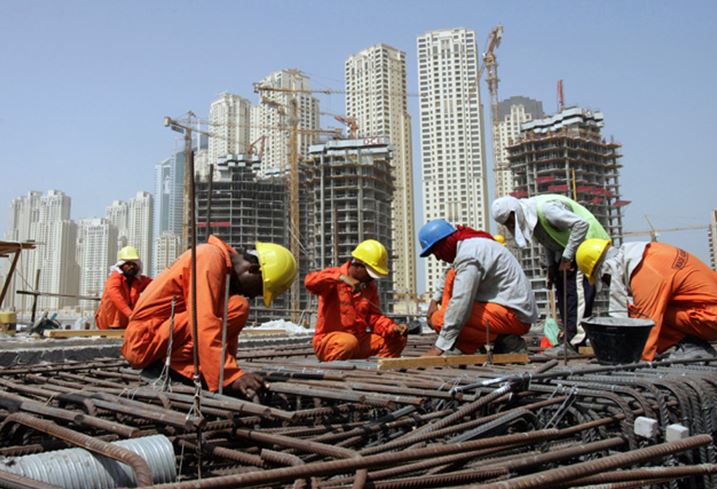For decades, the Gulf region was among the most popular regions for Indians to find a job outside the country. The rising oil prices fuelled the Gulf countries to 1.6 trillion dollar economy and these countries, with their newfound wealth, became dependent on expat workers from Saudi Arabia for non-managerial jobs. But the problem with Gulf’s economy is that it is highly fragile, given the fact majority of revenue depends on oil exports. And therefore, whenever oil prices touch the bottom, the economy suddenly collapses.
The last few years have not passed very well for the gulf economy, and 2020, so far, has been disastrous. The prices of WTI crude dived into negative territory before rebounding to around 10 dollars per barrel. The WTI crude, which the gulf countries sell to countries like India, China, and Japan, is also trading in the ballpark of 18 to 20 dollars per barrel. The majority of the gulf countries budgeted oil prices above to 50 dollars per barrel to prepare public expenditure plans, but the oil is not trading at even half of that, thanks to Coronavirus induced lockdown.
Now, the economy of Gulf countries like Saudi Arabia, UAE, Qatar, and Oman is in doldrums and more than 3 crore workers from South Asia, who do different jobs right from menial ones to highly skilled engineering, find it hard to save their roles. These migrant workers form a large part of consumers in these gulf countries, and many companies depend on their expenditure for revenue.
The layoffs of the South Asian workers pose a huge risk for gulf economies as in many countries “the entire domestic, service-sector economy depends on expatriates’ consumption: spending money, going to restaurants, retail,” said Karen Young, a scholar covering the Middle East for American Enterprise Institute.
This also poses huge problems for Indian states like Kerala which are dependent on remittances by migrant workers from the Gulf to finance public expenditure. As these workers go jobless due to low oil prices, they would return back to home states, unemployed. However, this would not increase the net unemployment rate in India in the long run because many companies are expected to relocate their manufacturing units from Chinese cities to Indian. Therefore, the relatively positive result in dealing with Coronavirus is expected to pay off as hundreds of companies establish their manufacturing units in many Indian cities.
Many countries in Gulf have tried to hedge the risk of flight of migrant workers by offering long term residency, but given the fact oil is not expected to rebound very soon, at least not in next two quarters, these measures might prove effective for a smaller section of workers but the majority of them would be forced to return. For example, UAE, where around 85 percent of the total workers are foreigners took steps in offering long-term residency, but these steps, which are part of making gulf countries a non-oil dependent economy, are in the initial stage.
The biggest problem is that none of the gulf countries offer permanent residency to non-Arabs, irrespective of the person’s contribution to their economy, skill-set, and the years of residency in their countries. This highly discriminatory practice comes to haunt these countries whenever oil dives down, but, for Arabs, who have a very small population, these measures are important to maintain the dominance of the natives. Otherwise, South Asians, given their huge population, are going to control the government if they are given voting rights and permanent residency after a set timeframe.
“This pandemic has both exposed decades of systematic racial discrimination and deepened the suffering of migrant workers who have long faced exploitation and abuse under the Gulf states’ various kafala systems,” says Hiba Zayadi, Human Rights Watch’s Gulf researcher.
In Kerala, there is ongoing demand by the families of the migrant workers to bring back bread-winners of the family. The workers in the gulf are facing financial as well as mental distress in these tough times when the governments in gulf countries have abandoned them. And millions of people working as domestic help have been forced out of jobs, because they live in areas with a high number of cases, and their employers do not want their services due to virus fear.
“The situation is worsening. Many are under severe mental duress, having confined like a herd in camps during the long days of curfew,” said Anas Yasin, a Malayali journalist in the Gulf.
The rout in oil prices has not only exposed the fragility of gulf economies, but also put crores of South Asian workers at risk. The Indian workers are still, on average, better off at home as well as in Gulf, but the workers from Pakistan and Bangladesh are facing severe risk.
